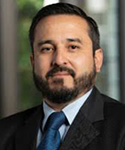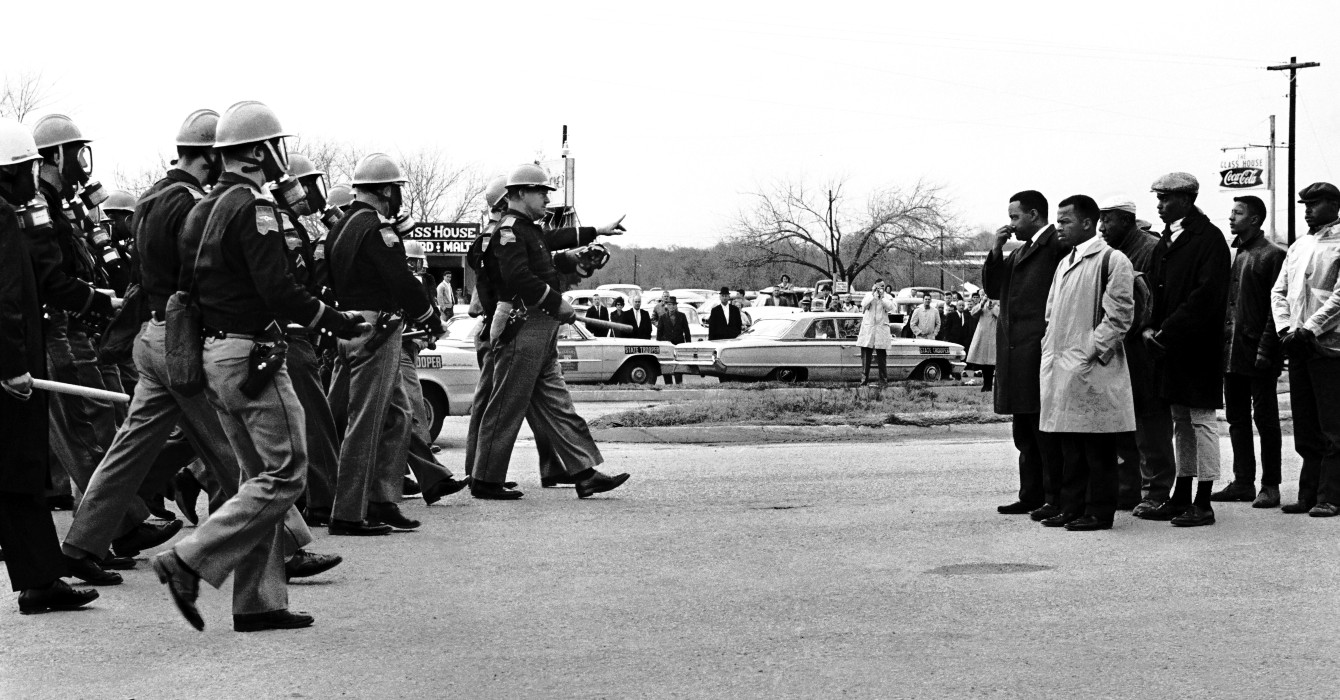When I came to the United States from Mexico 16 years ago, I felt confident of who I was. In fact, one of the reasons I decided to move to the United States was that I felt very much in control of my life. I was 22 and had graduated from college. I was active in my local church. I had a fiancee and planned to get married soon. I had secured a job I liked that offered potential for professional growth. I had it all figured out.
Then, unexpectedly, I felt a desire to go to the United States. This prompting -- which I now recognize came from God -- didn’t make a lot of sense at the time.
I had a love-hate relationship with the United States. I was born and had lived most of my life in a border town, and border culture is complex. My parents were seasonal workers, which meant that the U.S. was where they went for six months out of the year. My sister and I were left in Mexico. As teenagers, we were responsible for our household; we had to grow up without adequate supervision and accountability. For children left behind by immigrant parents, life is not easy.
But after a time of discernment, I made the decision in 2003 to move to North Carolina.
The experience of immigrating has taught me a lot, both about the culture of my new home and about myself. It has also taught me the value of “cultural humility,” a concept from the medical field that I believe is a good model for Christian leaders.
As Christian leaders, we often minimize the significant role that culture plays in the formation of individual identities, in our views of God and the Christian life, and in our leadership styles. We often assume that because one of the core principles of our faith is loving God and neighbor, we will automatically acknowledge and appreciate other cultures.
But I think that if we really want to live fully into our faith, we must be intentional about seeing and exploring our differences. It is precisely in paying attention to our cultural differences that we can learn more about God and our neighbors.
As a matter of fact, if we insist on staying within our own cultural groups and spending time only with people who look and think like us, we will prevent ourselves from discovering aspects of God’s self that otherwise would be revealed to us.
My experience as an immigrant has helped teach me how important it is not only to recognize that we are different but also to adopt a posture of learning from the other -- especially those from different cultures, with different world views, sexual orientations, ethnic backgrounds, intellectual abilities and so on.
This is the idea behind “cultural humility,” a concept introduced by Melanie Tervalon and Jann Murray-Garcia in a 1998 article about medical education. They emphasized that understanding other cultures is a lifelong journey that starts with critical self-reflection about how we interact with and respond to others.
Tervalon and Murray-Garcia developed the approach of cultural humility as an alternative to that of cultural competence, which offers useful tools but can paradoxically foster cultural arrogance and stereotyping.
In addition, they said, it is important for health-care providers to challenge institutional power imbalances between themselves and their patients and to develop “mutually beneficial and nonpaternalistic … partnerships with communities.”
This concept can be useful in the church, especially for denominational and judicatory leaders and others forming new generations of Christian leaders.
When I came to the U.S., I was forced to not only learn about but also assimilate into this new culture. It was a painful process at times. For people in marginalized groups, it’s not an option simply to see difference, appreciate difference and embrace or assimilate to difference -- it is a matter of survival.
But I also had to learn cultural humility myself. In 2012, I took the Intercultural Development Inventory (IDI) survey, which made me realize there was a lot of room to grow in my understanding of other cultures.
I thought more highly of myself than I should have. Once again, I thought I had it all figured out: I’d left behind my language and culture and had learned to navigate new systems. I’d been ordained in the United Methodist Church, had secured a position at Duke Divinity School and was in the process of becoming a U.S. citizen.
But I realized that as significant as these accomplishments were, I couldn’t become complacent. I needed to keep learning.
Perhaps that is why the apostle Paul considered it important to tell his audience, “I say to everyone among you not to think of yourself more highly than you ought to think” (Romans 12:3 NRSV).
Ongoing critical self-reflection that leads to repentance should be a nonnegotiable among Christian leaders. Critical self-reflection is especially important as we think about the ways we treat minoritized groups or any people different from ourselves.
For Christian leaders who belong to the dominant culture, come from privileged backgrounds or hold significant power, it’s even more crucial to adopt this posture of ongoing learning -- to embrace this means of grace.
Cultural humility principles in the context of ministry encourage us to find ways to develop and establish relationships in which we exercise what I call extravagant mutuality. Paul put it this way: “Do nothing from selfish ambition or conceit, but in humility regard others as better than yourselves” (Philippians 2:3 NRSV).
Extravagant mutuality is not only about equity and equality; it also encourages us to go the extra mile in all our interactions with other cultures. We then consider the other as better than ourselves -- especially when we come from privileged backgrounds.
The cultural humility principle of institutional accountability can be especially helpful for Christian leaders as we try to engage in prophetic ministry with honesty, integrity and authenticity. One of the temptations for Christian leaders is the impulse to confront oppressive institutions and hold them accountable without first analyzing the ways that we ourselves hold and use power over others.
Through these principles, Christian leaders develop a common language that facilitates growth in the way we interact and share life with people from other cultures. It also helps us become more effective facilitators for conversations about difficult topics such as racism, power dynamics, sharing power and control, and human sexuality.
These principles have helped me in my journey toward cultural humility, but more significantly, in my journey toward Christian perfection -- toward loving God and neighbor intentionally and extravagantly, as God loves us.







